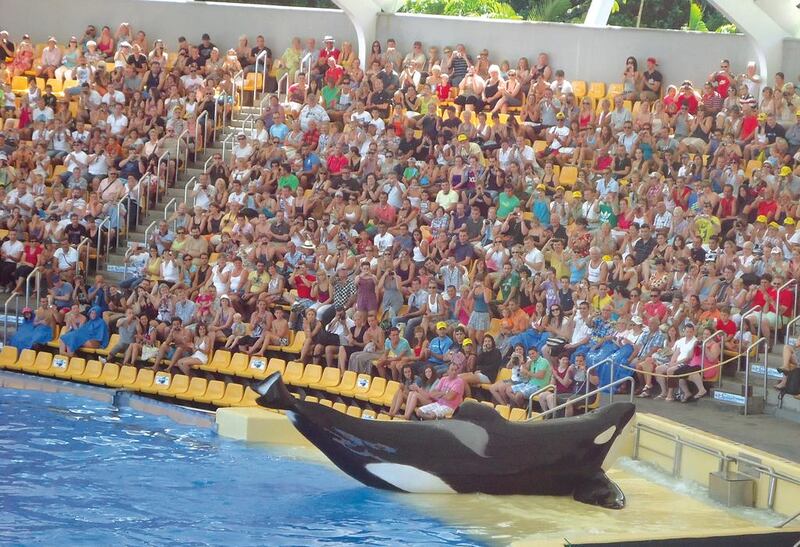Blackfish, a documentary exploring the devastating consequences of keeping killer whales in captivity, was a sell-out at the Abu Dhabi Film Festival and is in the running for a Black Pearl Award as part of the documentary competition
Its director Gabriela Cowperthwaite aims to prove that it is almost inevitable that captive killer whales will turn on their human trainers, as happened in February 2010 at SeaWorld, Florida when a top trainer was killed during a live show.
Using interviews with former SeaWorld executives and trainers, court documents and archive footage, the film uses that death as a starting point to trace three other deaths and many other shocking non-fatal attacks by orcas in captivity over 20 years. SeaWorld declined to speak to Cowperthwaite for the film.
Jeffrey Ventre worked as a whale trainer at SeaWorld for eight years before leaving in 1995, partly in disgust at the practices he witnessed. He has since become a medical doctor, travelling to Abu Dhabi as part of the delegation promoting the film.
“Animals were dying young, they were breaking their jaws on the steel bars that separate the pools,” he recalls, during an interview at Emirates Palace. “There is decreased lifespans, collapsed dorsal fins, social strife, deconditioning and sunburn. All these things contributed to painting a very negative picture of captivity.”
His mission, he says, is not to close down the parks completely: just to urge them to stop exploiting killer whales for profit.
“Killer whales are highly intelligent creatures. They have advanced processing skills and lead highly elaborate, emotional lives,” he says. “They live in strong nuclear families and it’s immoral to separate them and put them in small, enclosed spaces where they can only swim in circles.”
The film is an important one for people to see, says Ventre. “Four humans have died needlessly, while the whales are continuing to live miserable lives. I hope the film makes it clear that the public can do their part to end this by not going to these parks and forcing them to change their business models.”
[ hberger@thenational.ae ]





